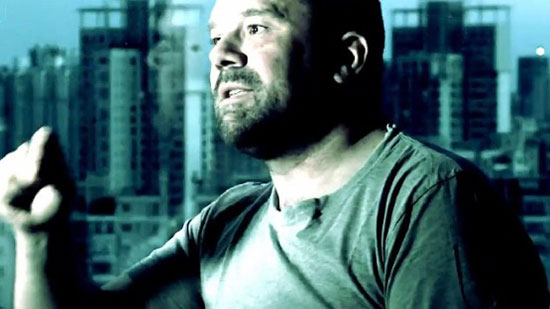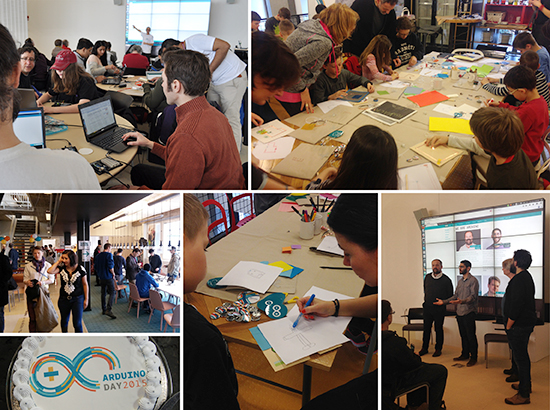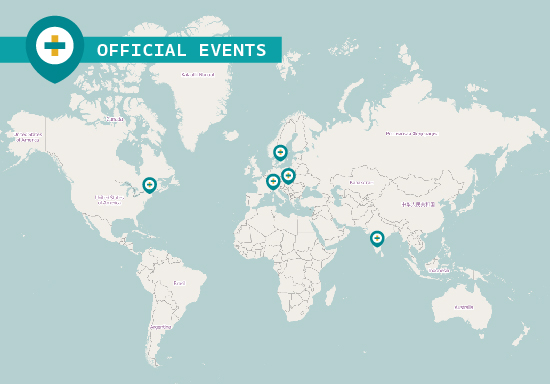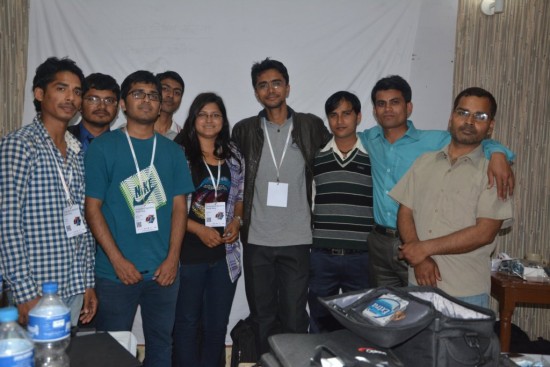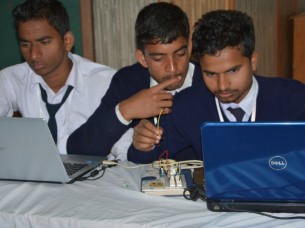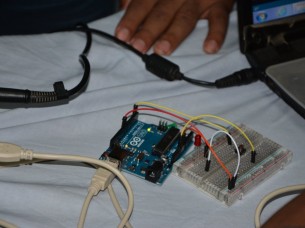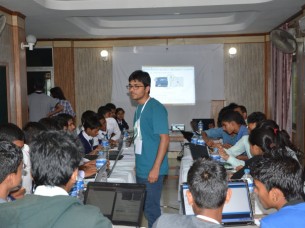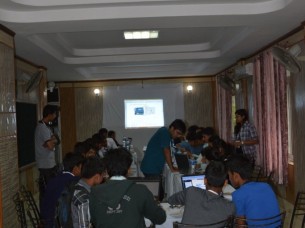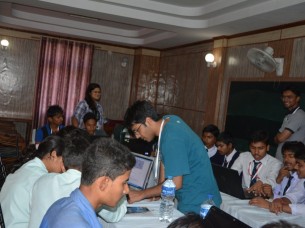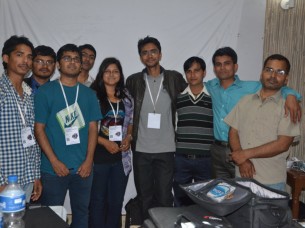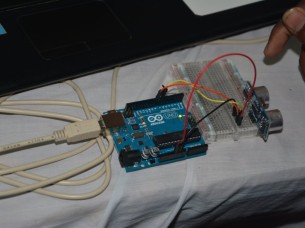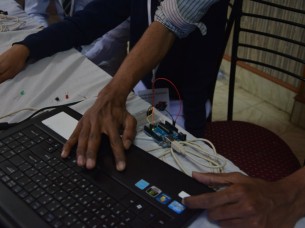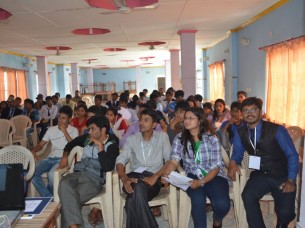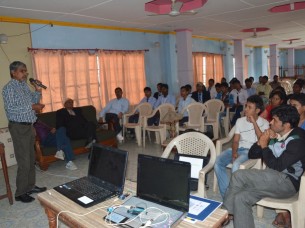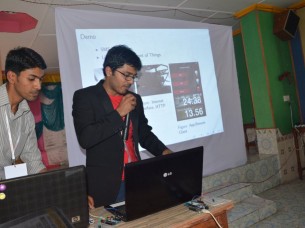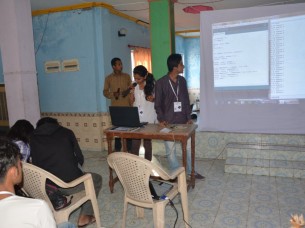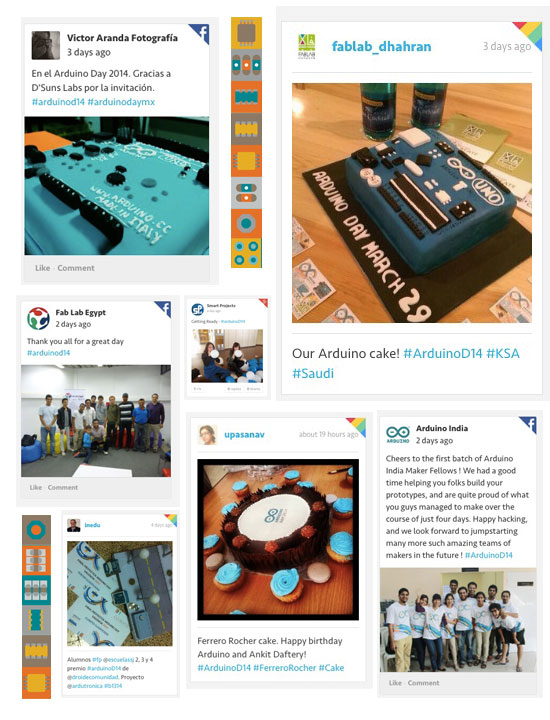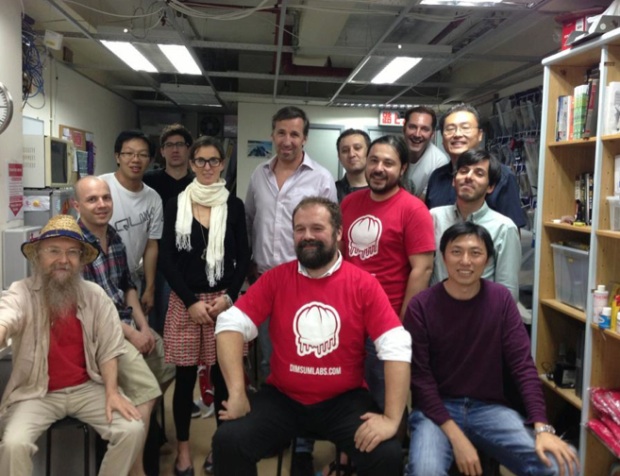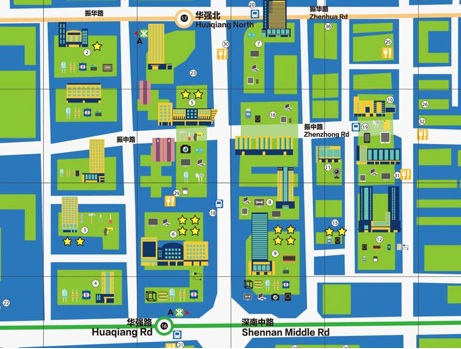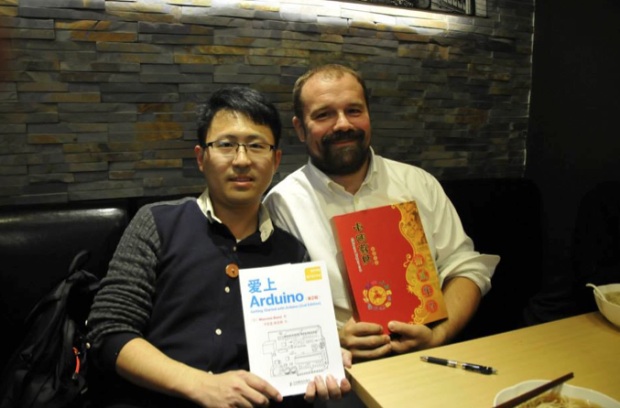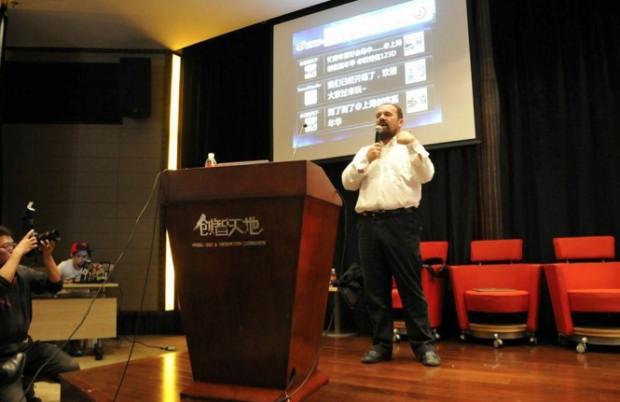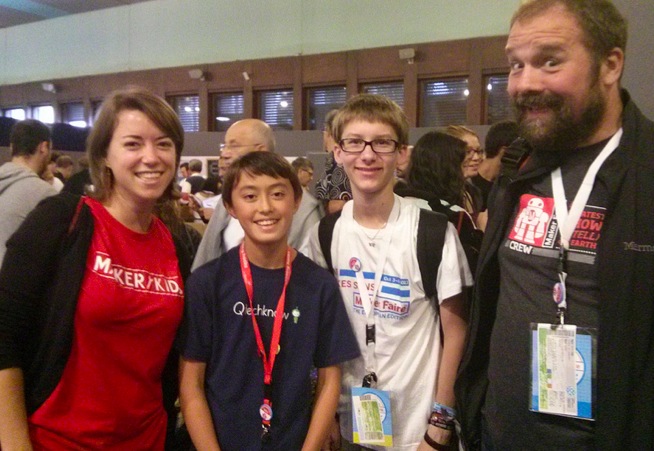
(originally posted on Makezine)
This month I’d like to talk about the idea of making together and what it means for Arduino. The whole idea of being a maker involves concepts of collaboration, community, and working with other people. It’s very hard to be a maker and be by yourself locked in a room or even in a lab. It’s really something that involves a lot of collaborations at different levels.
Many people today know what Arduino is, but very few know about two projects I did before Arduino. They were my first attempts to solve the problems my students had in prototyping with electronics. I consider them “creative failures.” As makers, we welcome failure as a way to understand how to do it better the next time.
Those initial projects I prototyped were not working so well because the technology was not really good but mostly because when I developed these things I did them by myself. I didn’t involve other people and I was very inefficient in trying to get them to work properly. They solved a number of problems my students had, but they didn’t really get a lot of momentum.
Ten years ago I started teaching at Interaction Design Institute in Ivrea (unfortunately it doesn’t exist anymore) where the Olivetti company used to be. In the picture below you can see their building and it’s not hard to notice it was created with a “design” approach. Olivetti was one of the first companies in the world to really apply design to everything: from their typewriters, to their buildings and to their posters, etc. Mr. Olivetti had that idea factories should have paintings on the walls because workers should be surrounded by beauty and knowledge. It was part of a bigger approach putting people at the center. It was in this context at the institute where we developed a number of projects before we came out with Arduino in the shape you know it now.
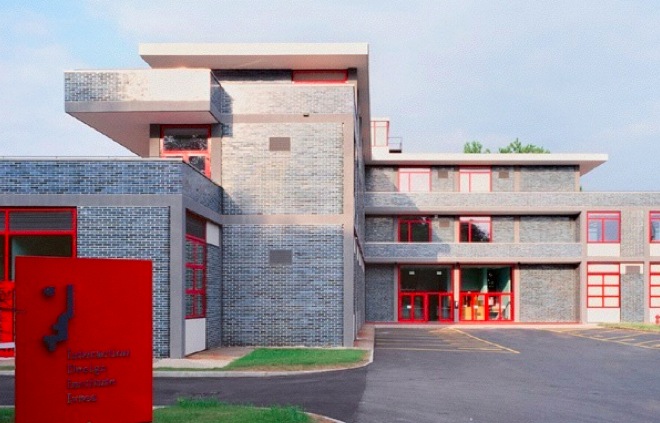
If you peel back the surface, underneath Arduino project you can find a lot of collaboration. On one side you can see a selection of pretty amazing open source software contributing to what Arduino has become. I’m talking about GCC, processing, wiring, AVR, and all the other contributions from the community. On the other side, I started to involve specific people.
I met David Cuartielles when he was researching in Ivrea and we started to talk about things we wanted to see in the platform to help our students getting started with electronics. Slowly we also got in touch with other people: Tom Igoe, a professor at ITP in New York with great experience; David Mellis, an amazing software developer who joined Ivrea from MIT; and Gianluca Martino, an electronics engineer who knows every company involved in electronics in the area. He’s now taking care of the manufacturing.
I gathered all these people one-by-one because we wanted to make an open project based on collaboration. All the founders brought their own experience into Arduino and later what became really important was the Arduino community. At the moment there is a community much larger than number of official Arduino boards we have sold. There are more than 180,000 people subscribed to the forum and more than 4 million monthly page views to the website with visitors spending about five minutes on each visit.
Arduino was born out of different contributions and it taught us to follow this path with most of our products. We started collaborating with other people and companies of the open source community, extending our role as makers into ideas and projects becoming products. Recently, we told you the story of the Arduino robot and an example of collaboration.
For example, some years ago, with Adafruit we developed the Arduino Micro packing all of the power of the Arduino Leonardo in a smaller board. We met with Limor and Phil sharing a lot of ideas and more projects are coming up in the next months.
At some point we also worked with Telefonica, a global mobile operator, to make the Arduino Gsm Shield. The technology of the shield is basic but we worked really hard to develop the API to use the module very easily. What’s important about these collaborations is not the technology but other things like lowering the barriers to access a sim card and allowing people to activate it very simply, just with a credit card. The value we created was about opening up a collaboration and making a big company like Telefonica aware of the impact of a product like this in the maker community.
A similar thing, but with a smaller company, happened for Arduino Yún. DogHunter, based in Taiwan, designed the board together with us. The factory we usually work with in Europe didn’t have the experience to work with wi-fi technology so we teamed up with a factory in Taiwan which had an experience with millions of access points. Arduino Yún became the first official board made in Asia.
In the first half of 2014 we are going to release the Arduino TRE. It’s a combination of a Beaglebone and an Arduino plus a number of things designed to make it very convenient for people to get started. We worked with Texas Instruments and especially Beagleboard, which shares with us a series of commitments to open source hardware and similar goals and ideas, like the desire for simplicity and ease of use.
Once again we realized how easier it is to find someone who can give you a cheaper piece of hardware, but in the long run, even if it’s harder to find someone who shares the same set of values, it’s well worth it.
We believe in the open source movement and everyone should be really aware that it can develop successfully if everyone takes from it, but especially if people and companies contribute back. That’s why it’s important to highlight who creates a positive loop and nurture knowledge sharing and collaboration.
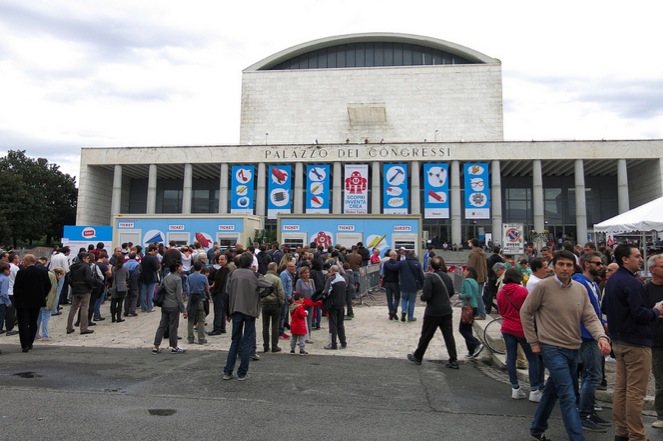
Even if there is the perception the maker movement is much more U.S.-centric, with a lot of visibility for American makers, events, and companies, we believed that we could do something to improve the relations among the movement here in Europe and activate more positive loops.
We realized that one of the issues was about language. Many European makers are very active in their local community, but they don’t Speak English. That’s why we decided to invest time and resources to create an European Maker Faire in Rome, inviting people from all over the continent. It was not easy to organize it, but I can say that it was an incredible success with more than 35,000 participants. It proved that in Europe people want to get together, know each other and cross the boundaries of the over 27 countries with different languages.
Maker Faire is not an event that has to do strictly with people making hardware. For me it’s much more important because it opens up channels of communication between makers and the concept of making together. We are happy to show what makers can do and how they could collaborate toward a future of great open source projects and, later, bringing benefit to communities around the world.
